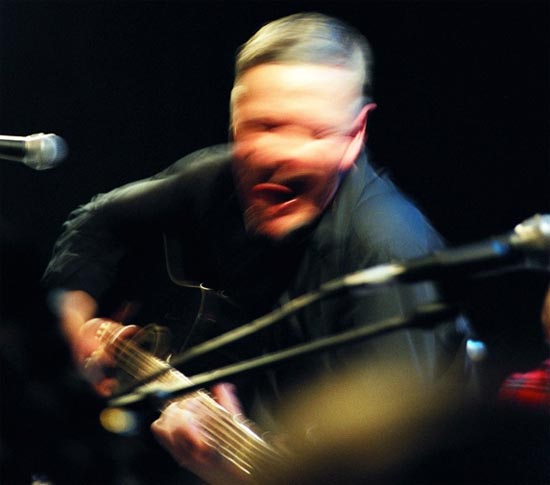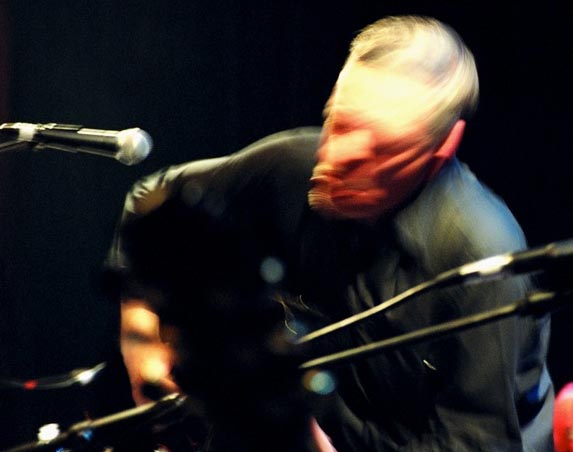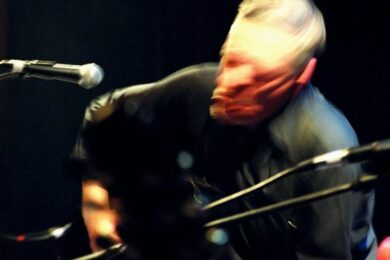“Well, first of all, the correct term is disinter,” says a deep-pitched, sardonic and instantly recognisable voice in response to my first question about the reappearance of Swans, over a decade after their last album and tour. “Re-form… I mean, re-animate… er, re-start?” I flounder, stumbling over semantics, before I realise that the band’s originator, Michael Gira, is having something of a laugh with me.
This is something I never expected. From their formation in New York in the early 1980s with albums like Cop and Filth to dissolution in 1997 after live album Swans Are Dead, Swans’ music certainly changed and grew, the band’s sound spreading and blooming from dense No Wave assaults to sprawling, haunted songs, like ivy climbing and eventually claiming a derelict factory building. But it never let up: viewed in retrospect, Gira and his band were remarkable in being not only prolific and experimental – delving into different sounds, characters, atmospheres – but also remaining steadfastly intense, rarely sounding tired or predictable. Something big is always at stake in a Swans record, whether Gira or former co-vocalist Jarboe are roaring in anguish, hammering out a deadpan chain-gang chant, or steering a wistful melody with lyrics touching on pain, performance, sex, blood, God, power and control, damnation and redemption. But beyond the lyrics – and the stories of dysfunction and self-destructiveness within the band – it was the sound of Swans that hinted most at what that something might be. Gira has always been a brilliant arranger, adept at juxtaposing dissonance and almost sentimental melodicism; visceral intimacy and alienated machine-noise. As far back as 1987’s Children Of God, every song has its own well-defined world, every corner obsessively shaded in, whether a waterlogged country lament like ‘Our Love Lies’, Jarboe’s silvery psychedelic ballad ‘In My Garden’, or snarling, vast tour de forces ‘Sex, God, Sex’ and ‘Beautiful Child’. Later, field recordings would be added to the picture, but not necessarily in the ambient way the term suggests: taped conversations, overheard dialogues from parents, lovers, strangers, appeared in the mix, the effect both poignant and unnerving.
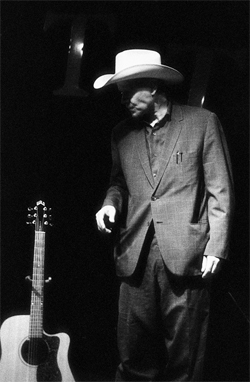
We fans are often histrionic types, but Swans’ music does often have about it the feel of something unrepeatable; something which could never happen ‘again’. But after a decade of recording metaphysical country music as Angels Of Light and releasing albums by Devendra Banhart, Lisa Germano, Akron Family and James Blackshaw, Gira has re-grouped former Swans members, including original guitarist Norman Westberg, and made My Father Will Guide Me Up A Rope To The Sky, which is reportedly the first of more new Swans releases. Its character is not a million miles from that of Angels Of Light’s more monolithic songs, but it sounds bigger – not just louder, but urgent and charged. Gira’s fondness for driving repetition is given full rein; songs circle around stark central patterns as if in the eye of a bracing storm. There’s a song voiced by Devendra Banhart and Gira’s three-year-old daughter, too, which recalls the part of Swans that was always fascinated by human deception and horror, as the sinister sweetness of the verses collapses into a chaotic outro: it’s wonderfully called ‘You Fucking People Make Me Sick’. You can read about the whole thing here, via the man himself, and next month, see Swans play their first live shows in a long time.
We’re in an archival era now, so much so hardly anyone remarks on it anymore. Bands re-form, dust off ‘classic’ albums, play them in sequence to sell-out audiences: Pavement; Gang Of Four; Sleep; Michael Rother and Steve Shelley from Sonic Youth playing Neu! For the most part, it makes me uneasy, and it’s clear that Michael Gira is also keen to separate himself from this trend, emphasising that there will be no faithful track-by-track exhumations on the forthcoming UK tour. Of course he is. But he has a point, and not just because of the searing new album, coming as it does after a decade of high-quality Angels Of Light and solo work, or because of his long-held tendency to reinterpret his own music in interesting ways, or because he is – really – one of the least cynical musicians I can think of right now.
For all the awesome finality of their previous work (which of course was a brilliant illusion of finality, end-times repeated over and over) perhaps Swans deserve more than most artists to transcend the static image of the band they once were, and make a case for the status of continuity, process and development in rock music. For music that bypasses the myths of success and demise followed by carefully curated reappearance, to unfurl and sprawl over time and space, with its own geography, logic and lexicon. We’ll see – we’ll hear.
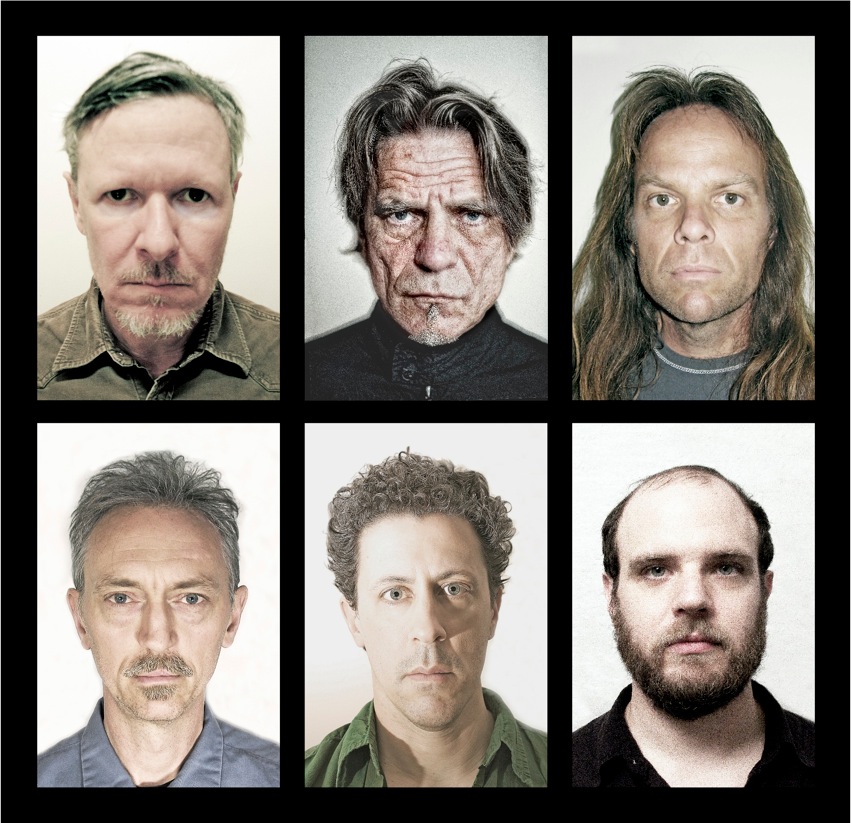
You’ve talked about this sort of sonic revelation you had at an Angels of Light gig that prompted you to re-form Swans. What happened between that and the recording, and how did you go about getting everyone together?
Michael Gira: I had to fly people in from all over the world, basically. They had heard the songs in demo form, on acoustic guitar, and then we had to get in the studio and expand the songs. There are ideas I had that were inside the songs that I wanted to then bring out with other people. We recorded in this huge old factory building in Brooklyn which has a basement with 18-foot ceilings and maybe 2000 square feet of space, and we set up close to each other in a semi-circle – no separation, no sound booths, nothing – and we just played, one song per day for 12 hours, over and over, until it grew and grew and became something that was animated by who we are as people rather than just some songs with specific beginnings and ends. It was so loud in that room; it was almost like being in a cathedral, where you hear can voices building in a really elating way. So, once we’d reached that stage, we pressed record, and had the basic structure of the song down that way. Now, I think certain sections of the songs could have been much longer. That whole beginning part [the percussive opening of ‘No Words/No Thoughts’] could be 10 minutes long, in my mind. But we were completely out of time – I was singing the vocals the night of going to mastering.
Did you put yourself on a tight deadline on purpose or was it something you had to do?
MG: We had to get it done because we have a tour, so it had to finished, and there was no more fucking around, so to speak! I’ve since done a companion CD to the album where I took things and expanded them and used the basic music from the whole album as fodder for making a 45-minute piece of music; that’s going to be a special edition that’s only on the website.
It’s interesting hearing about how live your recording sessions were – I’d always thought you took a very directorial approach to recording, where you’d have everything worked out before you even went into the studio.
MG: I do, but once I start working it all goes to hell – but in a good way.
Do you find yourself doing the opposite to what you planned?
MG: Oh yeah – that’s the best. Mistakes are wonderful. You have to, or a good producer has to, I think, seize on the moment where there’s this great thing you didn’t expect, and that becomes the impetus for the song.
When you first approached the members of the band to make a Swans record, what was their reaction?
MG: They were – elated, I think. Norman and I hadn’t been in contact for a long time, although he’d come to see me perform solo recently, which is when we started talking again. I was really happy that he agreed. He was in the band from 1983, so…
It’s great to hear him play – he’s very distinctive. It must feel good to be playing together.
MG: Yeah, his guitar is like going to church. It’s just a really signature sound, with great overtones and sustain. It’s simple but very sweeping.
People have often described Swans as a noise band, but there are so many elements that are not really noise at all – like that sweeping, epic aspect.
MG: I don’t like the term ‘noise’ at all. I never did like it. I look at it more like building structures with sounds: whether it’s melodic or atonal or brutal sounds. I had no choice in the early days because I had no musical training or experience whatsoever, but I wanted to make something happen.
Am I right in thinking that’s partly why you disolved Swans initially – that there was a perception that you were a noise band, or a band to go and see if you wanted this super heavy experience – and you felt like you’d had enough and needed to change?
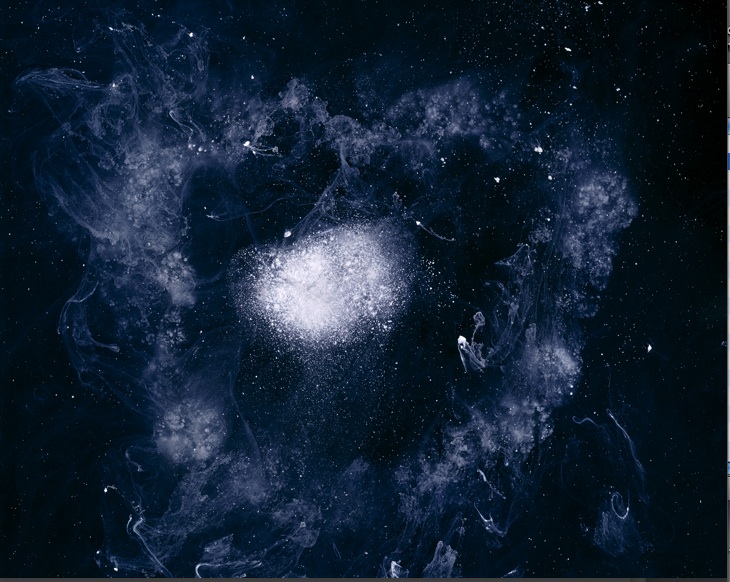
MG: Swans was varied musically throughout its time – it wasn’t just heavy. But just the experience of [being in] Swans was like 15-years trudging up a sand hill wearing a hair shirt, being sprayed with battery acid, with a midget taunting you up the hill. It was just really hard. We never reached any level of monetary success; it was always a struggle to get the money together to record and tour, and then you get some money and you’re broke again, and you just keep trying and trying and going and going. The whole experience, along with the baggage of how people viewed the band, and their expectations – especially as we changed along the way and they were disappointed… it was basically 15 years of being tortured mercilessly!
But at this point it’s something else. It’s taking aspects from the sonic history of Swans but also moving forward. It has been interesting to see the old cliches pop up, like promoters pushing it as ‘the loudest band in the world’ – it’s so dumb.
I never saw Swans play live, but istening to Swans live recordings, it sounds loud but also very controlled. There’s space for silence there too… I’m thinking particuarly of Swans Are Dead.
MG: That’s one of my favourite records. The reason for volume was that I wanted a completely consuming experience; I wanted to feel my body atomise. I wanted to levitate and that’s how you get there.
You used the word ‘atomise’ and I’d like to relate that to Soundtracks For The Blind too. There are tracks on there that are looped and fragmented and layered and that to me suggests atomisation too. It’s closer to ambient music. Is that something you want to pursue in future albums?
MG: The next Swans album, I’m going to take as a starting point the long instrumental sections on the new record and start working with those, not really worry about songs per se, get the band together and start recording that way. If words come, they do, and that’s great, but if they don’t, they don’t. We’ll try to make the whole thing a sonic experience, rather than songs orchestrated and developed into a sonic experience.
Why do you want to get away from songs?
MG: I don’t really want to – I don’t have a choice because songs come few and far between these days. It’shard for me to write songs. That’s one reason why I didn’t put anything out for about three or four years between the last Angels Of Light album and this album. Everytime I sit down, I think ‘I’ve already said that’…I have a piece of music rolling around in my mind, but then as soon as I impose my horrible voice on it, I seem to kill it. I got frustrated constantly – I had writer’s block. But gradually it opened up somehow – God was merciful, I suppose – and I started to write some songs. But I’m not concerned about it, because I’ve written hundreds, and I want to pursue the musical aspects of things; that’s enough for me. I’m not going to torture myself about it.
Have you always found lyrics hard?
MG: One of my best songs ever, I think, words-wise, is called ‘Failure’ – it sort of describes the working life [laughs] – but that song, it took like an hour to write; it just came out. And other songs, usually the shorter ones, take forever. That song on the new album, ‘No Words/No Thoughts’, that took forever.
Why? Maybe because it has such a strong drive, a big sound, it felt like it needed to be pared down to its essence and that’s always a hard thing to do?
MG: Right. With a song like that you can’t write a narrative, and it can’t involve ‘me’; singing about yourself, what a stupid thing to do when you have a huge sonic picture like that, to impose an ego on it or something about your life. So I tried to create a mental space with those words, and it was the hardest thing to do. It was almost like I wanted to write a prayer, or a mantra, I don’t know what it ended up being but it’s something like that.
A lot of bands do that and they sound like pompous idiots, writing their personal lyrics over some huge sound – it doesn’t make sense aesthetically; it almost ethically doesn’t make sense. But other songs on the record are more intimate, with a smaller sound…it’s a long process.
What about playing the new songs live? I imagine you’ll be messing about with them a bit, not playing them exactly as on the record.
MG: We’re going to start rehearsing in a few days and again we’ll be rehearsing twelve hours a day, three weeks, every day. That’s to really get inside the record and to grow it. I don’t want to replicate the record, I think that’s silly: I want to take the songs and find out what we can do with them now that we’re not worried about recording them, to make something that’s more a total experience for the live show. We’re also going to use some older Swans material in the same way, from the early albums – we’re not going to replicate it, but [we’ll] use that material as a starting point.
Which of the older songs are you doing?
MG: We’re going to do ‘Your Property’ from Cop; ‘Beautiful Child’; ‘Sex, God, Sex’; there’s a little song we like to call ‘Raping a Slave’…we’ll see how it works out. There’s a song on Swans Are Dead that Jarboe sings, ‘I Crawled’: that’s also an early Swans song, but it doesn’t sound anything like the original. So if you listen to the original and you listen to that version [on Swans Are Dead], that’s sort of what I’m talking about, taking the original and morphing it into something different.
You’ve done that throughout your records too – like ‘I See Them All Lined Up’, which is on three albums in different versions. You re-interpret your own songs, which isn’t done so much in rock music, where there’s more this impulse to stick to the record, to have one proper version…
MG: I don’t see the point in that. That seems particularly narrow-minded. From my point of view, the whole recording experience and the live experience are completely different. In a recording, the performance is very important; that’s the starting point to me, and then to make a record out of that, whereas for a lot of people, recording is about capturing the band, how they played in the studio. I’ll want to capture that, but then I’ll make it into something else that uses all the potential of recording process. Live, it’s just about performing live; it’s not about codifying or capturing it. It’s a lived experience, a different thing completely.
Is that one reason you’ve been so emphatic about this not being a reunion, it’s not about nostalgia, it’s not about Swans just playing the old songs? In the last five years or so there’ve been a lot of bands either reforming or getting together to play an old album all the way through, and I feel like you’re distancing yourself from that.
MG: You’re absolutely right. I don’t like that at all. It seems kind of vampiric, auto-cannibalism, you know? I’m not interested in that. I decided to use the Swans moniker and aesthetic as way for myself as an artist to push myself, because I felt like I was trapped by the structures I’d set for myself in Angels Of Light and it wouldn’t have made sense to do the things I want to do now and call it Angels Of Light. So I started Swans – that doesn’t mean it was going to sound like, or it was going to ape, what people’s vision of Swans was. In fact, Swans always changed along the way anyway, so it can’t be just one thing.
Do you have any thoughts as to why there’s such a trend for bands to reform to play their old material at the moment? It feels like every festival is headlined by a re-grouped group…
MG: Yeah, I dunno… [laughs, but with audible tension] our culture is sort of devolving or something, I guess? But I’m just doing what I want to do…I don’t care.
I appreciate that, and I’m not grouping you with that – for a start, you’ve made a new record. But bands from the No Wave or post-punk period, which was supposed to be such a ‘year zero’ kind of time, to see them playing again seems odd to me. But then, why do I think that’s odd? Because I wouldn’t apply that logic if I was going to see some jazz musician, like I’d go and see, say, Peter Brotzmann…
MG: Right…Particularly in England, the shelf life of most pop bands was short, so it can seem like a band can’t last for very long. The English press, at least in my day, I remember they’d pigeonhole people very quickly, and to try and move beyond or around that was very difficult because they had you already figured out and were onto the next sensation. I’ve tried to divorce myself from that and just operate in my own world. I don’t feel like I’m out playing our greatest hits. I have to keep myself interested in my work, and hopefully my audience too, if I want to be a vital human being.
I know that you don’t talk in interviews about Jarboe, but one thing I noticed in the new album is there’s less female presence than I was expecting and I wondered about that.
MG: My wife is singing a background vocal at the end, but it was pretty intentional not to have females. Once we got together, it was like, ‘Let’s not get the girls in…’ [laughs]
Why?
MG: I don’t know! It’s just a different energy.
And you didn’t want that energy?
MG: Not for this record. On every Angels Of Light record women have been heavily involved. It’s not like it’s macho or something. The kind of severity I wanted to go for, I didn’t want to nuance it much, I guess you could put it that way. It was a way to be in a different space, a different territory, which maybe was a little uncomfortable. Like, maybe I could rely to much on women doing background vocals, or the different approach women might have to a song. Maybe I’d been doing that too much.
But I don’t mind speaking about Jarboe. She was fantastic. We’re just not in the same space any more, and it would have been silly to involve her for that reason. That would have been a nostalgic thing to do, and disrespectful to both of us.
It would have been really voyeuristic too, the audience would be all like, ‘Look, they’re back together…’
MG: Exactly – it would have been a reunion.
